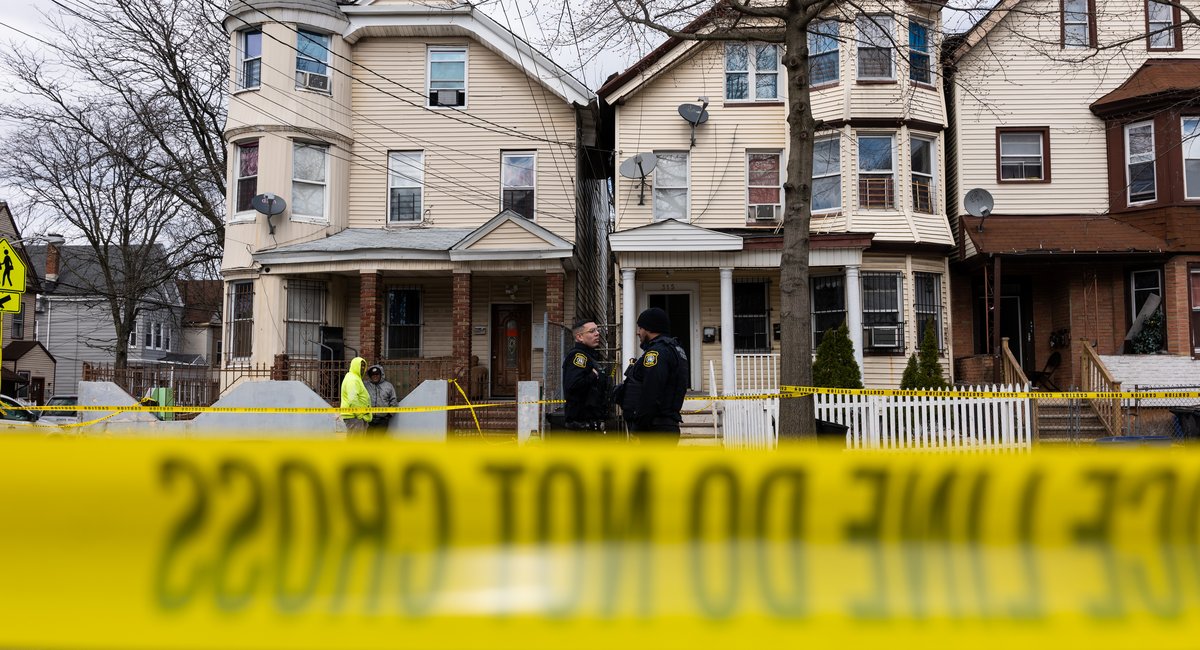New Jersey’s attorney general announced a new directive on Thursday that will send teams of mental health professionals with police to respond to situations involving barricaded people or hostages.
The sweeping changes to the state’s use-of-force policy are intended to decrease the possibility of violence during these tense standoffs, according to AG Matthew Platkin. The measure follows a lawsuit against Jersey City police by the family of a man who was shot and killed by officers while experiencing a mental health crisis in his home. The issue of how best to respond to mental health episodes has been a consistent challenge for police departments in New York and New Jersey.
“Encounters involving barricaded individuals are often difficult and high risk, regularly involving individuals in the midst of crisis who are armed,” Platkin said. “This policy represents the first statewide policy of its kind in the country, and is the result of an intensive process that involved law enforcement leaders, mental health professionals, violence intervention experts and community stakeholders.”
The policy emphasizes a slower, more deliberate procedure for such incidents and encourages law enforcement officials to assess the situation and consider calling in community crisis response teams or mental health providers through the state’s Arrive Together program.
Police will then have to collaborate with those professionals to try and work toward a peaceful resolution – unless immediate action is necessary to prevent injury or death, the attorney general’s office stated. Tactical teams will also be equipped with more nonlethal weapons, including tasers, rubber bullets, and better communication devices.
The announcement comes as the family of Andrew Jerome Washington, 52, is suing local officials for fatally shooting him while he experienced a mental health crisis in his Jersey City home last summer.
Body camera footage released by Platkin’s office shows that officers tried to talk to Washington for about a half-hour, but shot him seconds after opening the door when he started moving toward them with a knife.
Since then, similar shootings in New Jersey have spurred protests and demands for legislation to improve how law enforcement officials respond to people with mental health issues.
Earlier this year, Gov. Phil Murphy signed a law named for Washington and 31-year-old Najee Seabrooks, who was also experiencing a mental health crisis when he was shot and killed by police in Paterson in March 2023. It requires New Jersey to create a community crisis response pilot program and set aside $12 million to fund it in six counties, including Hudson and Passaic counties, where the men were killed.
“Law enforcement officers are often expected to be mental and behavioral health experts at times when actual experts are what is needed,” said Tiffany Wilson, the director of the Office of Alternative and Community Responses, about Platkin’s initiative. “With these updates and the funding of this newest ARRIVE Together model we are arming the officers tasked with addressing the most delicate and high-risk situations with much needed tools and resources, namely a blueprint and a mental health expert.”
Charles Boyer, executive director and cofounder of Salvation and Social Justice, an advocacy group based in Trenton, said deaths like Washington’s and Seabrooks’ shouldn’t have happened.
“These people were in need of mental health support,” he said in a statement. “They were in need of compassion, understanding and aid.”
He praised the attorney general’s office for the new use-of-force provisions but said New Jersey must do more, including codifying them through legislation and increasing funding for community-led crisis response teams to prevent violence while limiting harmful interactions between police and residents.
“There is simply no need for police to be involved in nonviolent interactions with communities of color,” said Boyer. “If we are to put an end to these senseless killings by those who have been tasked to protect and serve, then this is how we do it.”
This story has been updated with comment from Charles Boyer of the group Salvation and Social Justice.
